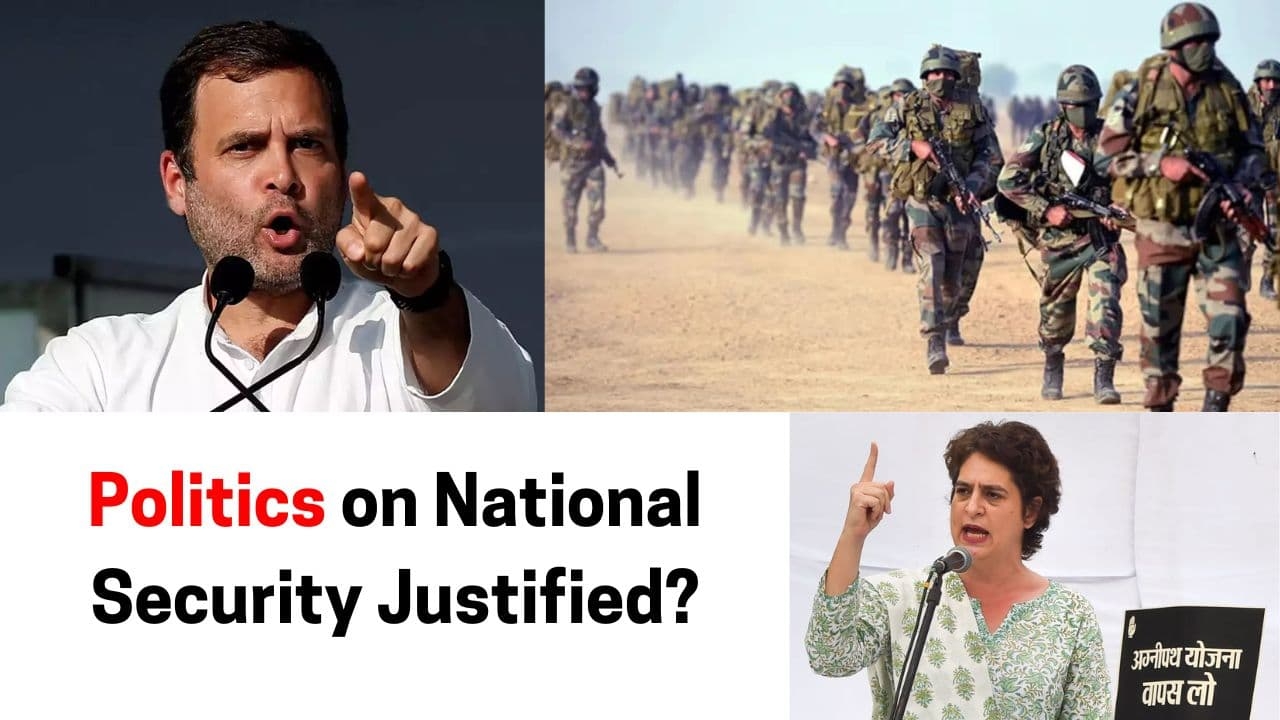Politicization Of The Armed Forces By Opposition: A Detriment To National Security
27 Jul 2024 16:09:59

India stands tall with its armed forces, yet there is a shameful sight of the opposition, specifically the Congress party, that keeps on criticising every move made by the Indian military. The politicisation of national security issues and the outright criticism against Agnipath do not reflect well on an opposition that pales in comparison to Prime Minister Narendra Modi when it comes to trusting India's defence.
A Strategic Reform: The Agnipath Scheme
Initiated in 2022, the Agnipath programme is a method to bring young and dynamic energy from all parts of Indian society. It seeks to fundamentally augment up new members into becoming prime working class soldiers across different cadres of India's defence service. This initiative aims at making the armed forces younger, more agile, and prepared for current security challenges. The programme recruits youngsters known as Agniveers to serve for four years, with a quarter retained for extended service. The Agniveers get disciplined training along with career opportunities.
Baseless Criticism of the Opposition
The Congress-led opposition has attacked the Agnipath scheme as being a cost-cutting measure that would lower standards of military personnel even though it is aimed at expanding strategic intent. Congress leaders like Sukhjinder Singh Randhawa and Karti Chidambaram have demanded the scrapping of this scheme as they argue that it is insufficient to address the army's long standing livelihood requirements, making national security a risk.
Rahul Gandhi has launched a fiery attack on the government alleging that they were misinforming the public and hinting at there being something wrong with compensation to families of Agniveers who lay down their lives in service. The Defence Minister Rajnath Singh meanwhile rejected his claims asserting that the compensation package was comprehensive and that it had been prepared in consultation with military officials.

Politicisation of National Security: Lessons from History
And this is not the first time when the opposition put politics over national interests. For instance, during the Kargil War in 1999 also, Congress and others criticised the Vajpayee government for not being efficient enough to tackle the conflict, with special sessions of parliament being called where armed forces strategies were questioned.
This was directly challenged by Narendra Modi, then a BJP general secretary, who stressed that national unity in times of crisis is the priority. He reminded us that unlike in the 1971 war when Atal Bihari Vajpayee supported Indira Gandhi, despite being from the opposition.
Modi's Commitment to the Armed Forces
Prime Minister Narendra Modi has always shown his commitment to a strong India and its security. His administration's actions like the implementation of One Rank, One Pension, and building a National War Memorial underline this commitment. Modi has charged the opposition with defaming defence policies and reminded them that their record in defence-related scams has only served to weaken the armed forces during his speeches.
Conclusion
The unrelenting attempt to politicise defence feats such as the Agnipath indicates a shocking disdain for national security on the part of Congress. Every move of the government is used to twist the narrative and pander for votes; on a matter as sensitive as national security, this politics can have dangerous consequences.
In comparison, Prime Minister Narendra Modi has been largely concentrating on building a dependent and sufficient military. All political parties should give preference to the national interest rather than their own interests, especially as far as security and territorial integrity of the nation are concerned. Agnipath is a relatively novel military recruitment scheme, and the more it succeeds in India's strategic defence landscape accordingly.
Article by
Shomen Chandra
Sub Editor, The Narrative